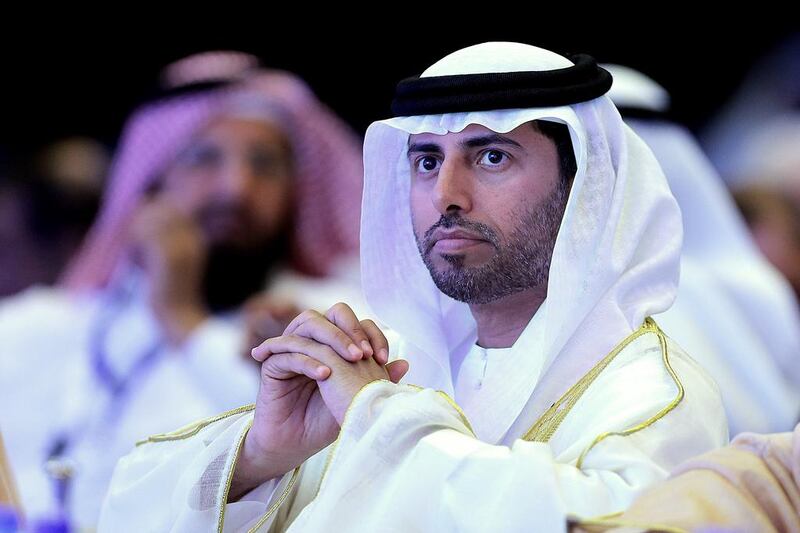The UAE's oil and gas sector is feeling the squeeze from the record drop in oil prices in recent months, according to a new survey by one of the country's largest employment consultants.
The weak jobs market in the hydrocarbon sector runs counter to the broader trend in the survey, which was conducted by Abu Dhabi-based Reach Employment, a division of the private equity firm Gulf Capital.
It found the vast majority of the 200 companies it polled were expecting to add jobs in 2015. Financial services, retail, tourism and health care were the hottest sectors and 91 per cent of those polled said they expected to hire new staff.
“However, within the oil and gas sector, the market has certainly softened,” said Andrew Croft, Reach Employment’s deputy chief executive.
“In the last six months, with the reduction in oil prices and revenues and the headwinds the sector has faced, we estimate that hiring for non-critical roles is down by about 30 per cent.”
The “non-critical” roles would include head office support jobs, such as human resources and general administration. The market for “mission critical” jobs, such as onsite health and safety managers, engineers, project managers and drilling operators, has also softened, but only by about 5 per cent, Mr Croft reckons.
There is little likelihood that the sector will also contract sharply.
The Minister of Energy Suhail Al Mazrouei has repeatedly said that despite the 60 per cent drop in oil prices, the UAE will forge ahead with a large number of oil and gas projects aimed at boosting oil production capacity from a current level of just under 3 million barrels per day to 3.5 million bpd by 2017, while also improving the country's ability to be self-sufficient in natural gas.
The UAE is also expanding its refining capacity. The US$10 billion expansion of the government-owned refining company Takreer’s plant at Ruwais, located about 240 kilometres west of Abu Dhabi, is aimed at doubling capacity to more than 820,000 bpd. It is expected to deliver its first refined products in March.
Abu Dhabi’s International Petroleum Investment Company, or Ipic, is slated to add a refinery at the Indian Ocean port city of Fujairah, with capacity of 200,000 bpd. Engineering and construction tenders for the plant are due at the end of March.
Still, companies in the sector are looking to tighten their belts while facing oil prices that may not recover for some time. A noticeable trend in cost-cutting is outsourcing, according to Mr Croft.
“Companies don’t want to take on additional headcount and some have headcount freezes in place, so they are looking to outsourcing companies to provide staff,” he said.
The experience at individual companies depends on their projects.
Those that were part of the consortium whose onshore concession expired at the end of 2013 – the Adco companies, BP, ExxonMobil, Royal Dutch/Shell and Total – all had their staff numbers in the UAE contract, although they may have compensated for it since.
BP, for example, has its staff levels back to where they were before the concession expired because of expansion of its work with Adma-Opco, the offshore operator in Abu Dhabi, according to Reem Mohammed, a spokesperson for BP in Abu Dhabi.
The new Adco concession has still not been awarded, more than a year after expiry of the previous one, and whichever companies are finally tapped will be expanding their operations staff.
amcauley@thenational.ae
Follow The National's Business section on Twitter





